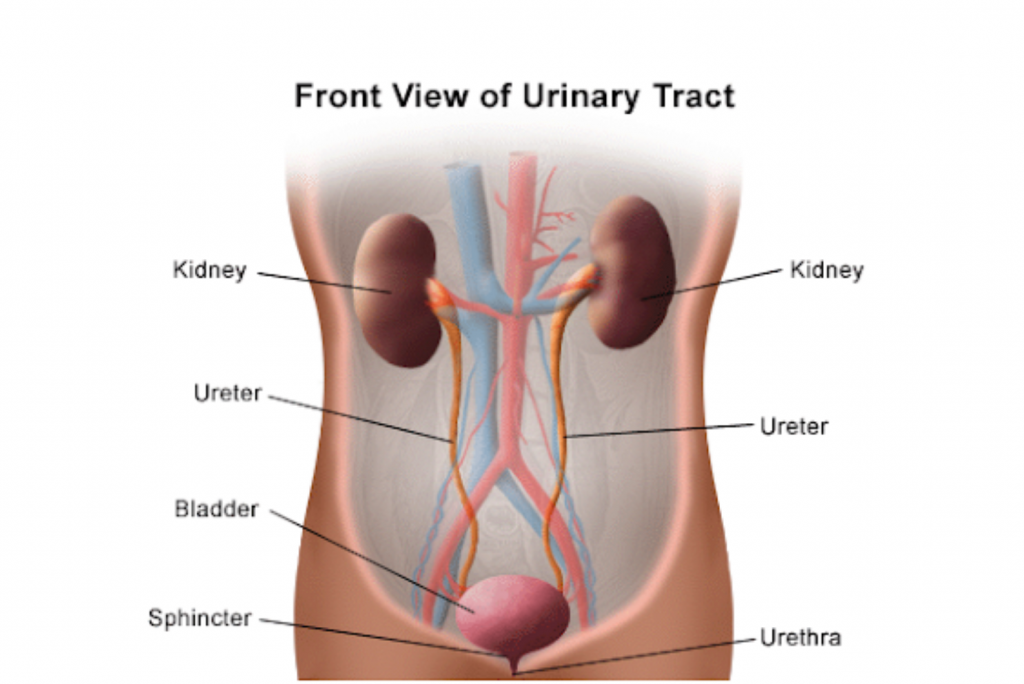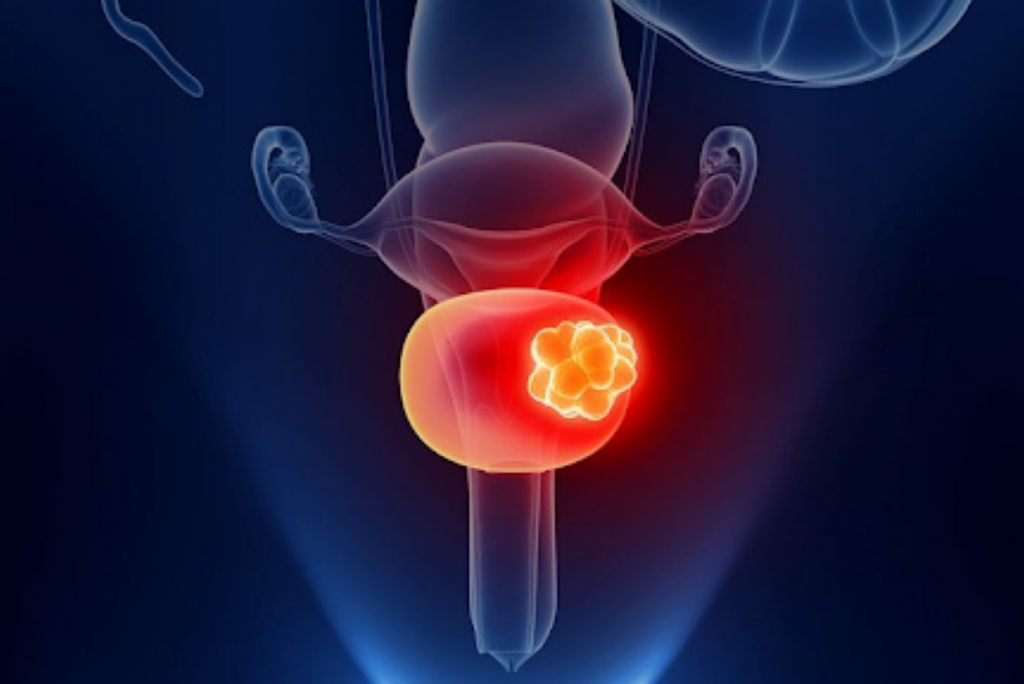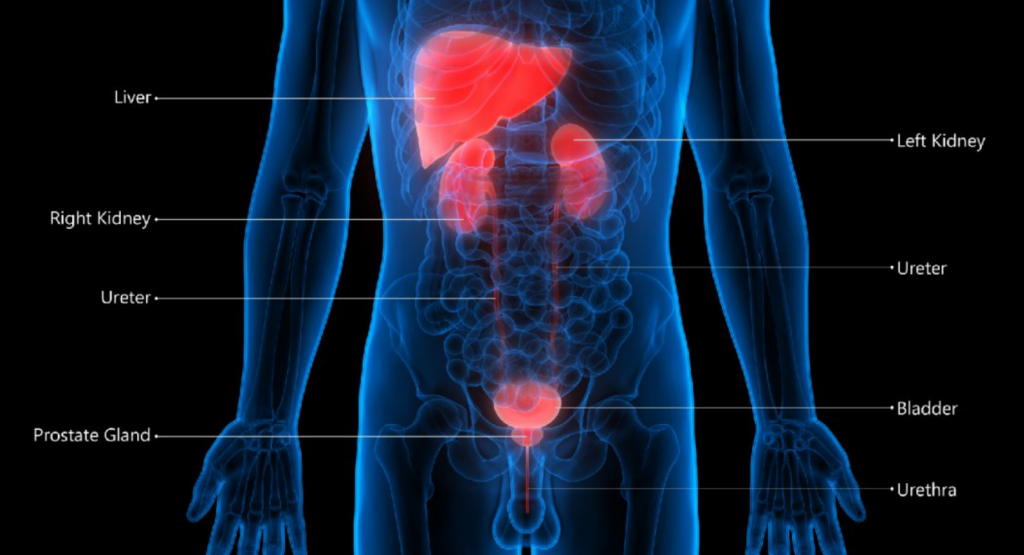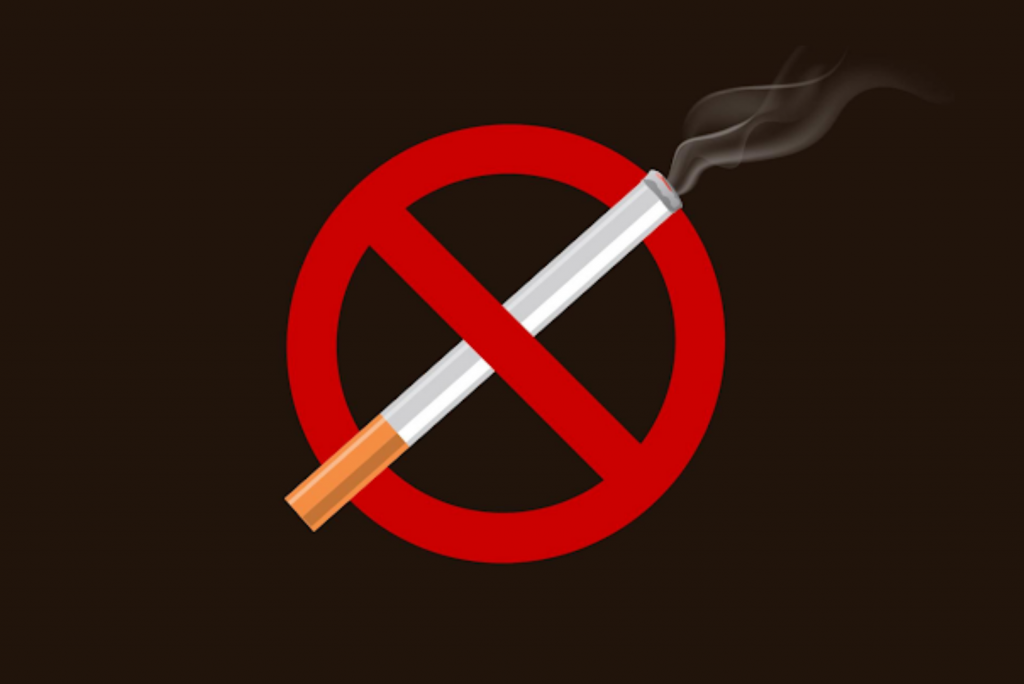Bladder Cancer: Types, Causes & The Right Treatment
669 viewsIn the post COVID – 19 era, staying hydrated with water and other healthy drinks is extremely important. All these fluids get stored in one of the important parts of the body, an organ that is medically called the urinary bladder. Also known as ‘bladder,’ it is a hollow muscular organ that stores urine. It connects with the kidneys. Most people do not treat the bladder as an important organ. However, in reality, it’s one of the most essential organs in the urinary system. And like most other organs, the bladder is also prone to getting under the attack of cancer. Cancer in the bladder is a very serious disease that needs timely diagnosis and the right treatment. Read along to know more about bladder, bladder cancer, its various types, symptoms, causes, and the right treatment.
What is Bladder Cancer?
 The bladder is a triangular-shaped organ in your lower abdomen. It is attached to the other organs in your urinary system. The walls of the organ relax and expand to keep urine. After a while, it contracts and flattens to clear the urine from your urinary system. In 2 to 5 hours, a healthy bladder can deposit around 2 cups of urine. Most people don’t think about their bladder health unless there is a problem. Similarly, one such issue is bladder cancer.
The bladder is a triangular-shaped organ in your lower abdomen. It is attached to the other organs in your urinary system. The walls of the organ relax and expand to keep urine. After a while, it contracts and flattens to clear the urine from your urinary system. In 2 to 5 hours, a healthy bladder can deposit around 2 cups of urine. Most people don’t think about their bladder health unless there is a problem. Similarly, one such issue is bladder cancer.
It starts occurring in the bladder. There are many layers on the walls of our bladder. Each of these layers is formed with various cells. When these cells grow in an uncontrolled way, the lining of the bladder wall leads to a mutation. And that’s how bladder cancer forms. Fortunately, it is highly treatable if diagnosed at an early stage. So, consulting your doctor at the right time can save you from this bladder problem.
Bladder Cancer Symptoms: What Are The Warning Signs of Bladder Cancer?

The most common symptom of bladder cancer is finding blood in your urine. At times it’s visible. However, sometimes there are chances that it can only be seen under a microscope.
Apart from that, bladder cancer can be suspected if there are any irritative symptoms of urination. These include a burning sensation while urinating, an urgent need to urinate, or frequently going for urinating. Sometimes, a person goes to the washroom and yet is not able to pass urine. So, this makes a person feel uncomfortable. At times, there are also chances that they might start feeling pain in their lower back.
Types of Bladder Cancer
The right treatment of bladder cancer depends on its type and its stage. Various cells in the bladder can be cancerous. Hence, the type of bladder cells decides the type of bladder cancer. So, let’s understand the different types to help you determine the right bladder cancer treatment. There are mainly three types.
Urothelial Carcinoma

This bladder cancer type is one of the most common ones. Urothelial Carcinoma was initially known as transitional cell carcinoma.
Our kidneys are connecting to the bladder by two tubes. These two tubes are called the ureters. The tube begins from the middle of the kidney. That point is the renal pelvis. Both – ureters and renal pelvis link with a specific and particular type of cells. These cells do not break apart. They have the ability to stretch and bend flexibly. This ability makes them change in no time. So, that’s why they are called transitional cells.
These cells are also known as urothelial cells. When the urothelial cells start appearing in the inside layer of our bladder, urothelial carcinoma forms. This type of bladder cancer is a metastasizing one. It means if left untreated, it can pass on from the bladder to other organs. So, it ends up spreading in a part of your body. Therefore, timely medical help is essential to avoid the spread of cancer.
Squamous Cell Carcinoma
The second most common bladder cancer type is squamous cell carcinoma. This bladder cancer type develops when there is a long-term irritation in our bladder. Such chronic irritation starts with transitional cells inside the bladder. They transform into squamous cells over time. Based on appearance, squamous cells are more flat and thin. However, these cells tend to form around the bladder.
Mostly squamous cell carcinoma occurs if you are exposing to a specific parasitic infection. This infection is medically called schistosomiasis. Access to clean water can prevent the chances of developing schistosomiasis.
Adenocarcinoma
It’s a rare bladder cancer type. Adenocarcinoma begins because of glandular cells. These cells comprise the mucus-secreting glands in our body. After chronic bladder irritation and inflammation, glandular cells start forming. This formation process leads to adenocarcinoma.
Bladder Cancer Causes
The precise and exact cause of this type of cancer is still unknown. However, bladder cancer is causes when the cells in our bladders start changing (mutating) with their DNA.
These changes have the power to multiply quickly. In this process, the abnormal cells that we discussed above can destroy healthy body tissues. Here are some of the risk factors of bladder cancer:-
Smoking

The most well-known risk factor for bladder cancer is smoking. In fact, smoking can also cause other types of cancers like lung cancer and liver cancer. When you choose to smoke, you are allowing the harmful ingredients of cigarettes to enter your body. These, in turn, excrete the damaging chemicals in your urine.
Clearly, this process leads to the destruction of the lining in the bladder organ. Therefore, gradually you end up increasing your risk of bladder cancer. In short, smoking does no good for your healthy body. So, ensure you seek professional medical help for your smoking habits. This can be done by reaching out to your doctor today through a free online consultation.
Old Age
The risk of bladder cancer increases as you grow old. To be honest, it can occur at any age. However, most bladder cancer patients are older than 50. In such cases, constant health check-up can be a beneficial precaution.
The Gender Factor
In most scenarios, people diagnosed with bladder cancer tend to be male in gender. This is because, more than women, men are very likely to get bladder cancer.
Chemical Exposure
Bladder cancer risk is increased if a person is occupationally exposed to chemicals. Our kidneys filter harmful chemicals in our bodies and move them into our bladder organs. Slowly, these harmful chemicals start accumulating in the urine which can cause trouble.
Some of these harmful chemicals include arsenic and other chemicals that are used in manufacturing. Hence, it could be found in factories that deal with dyes, paint, leather, shampoo, textiles, etc.
Previous Cancer Treatment
Certain chemotherapy agents during your previous cancer treatments (if any) can increase the risk. In such cases, the person is more likely to develop advanced bladder cancer symptoms.
Bladder Problems
Any urinary infection or kidney problems can give rise to bladder irritation. This may gradually lead to bladder problems like inflammation, long – term irritation in your lower abdomen.
Family History
If someone in your family has dealt with bladder cancer, you are more likely to get it than a person without a family history. In any case, the family member will be a blood relative of yours.
Bladder Cancer Treatment Explained
To get the right bladder cancer prognosis, your doctor will first conduct an initial examination. Here the medical course of action will comprise three main parts. These include initial diagnosis, bladder cancer stage determination, and choosing the right treatment option. So, let us further understand each of these parts:-
Initial Diagnosis For Bladder Cancer
The initial bladder cancer diagnosis part is very important. The initial examination can vary from case to case depending on the patient’s body and health history. Here, the doctor conducts a laboratory test called a urinalysis. This test will help the doctor understand the problem with your urine sample.
After urinalysis, the doctor goes for a cystoscopy. Cystoscopy is when the doctor inserts a tube along with a small camera attached. He/She inserts it in your urethra to check out the insides of your bladder. Therefore, this is done to identify and biopsy the abnormal cells.
A biopsy is when the doctor collects a small sample from your bladder to detect cancer. If needed, a CT scan is also performed to know the extent of bladder cancer.
Determining The Stages of Bladder Cancer
Now, the initial bladder examination is done. Based on your results, your doctor will determine the bladder cancer stage. This will help us understand how much cancer has been spread. The stages are ranked from 0 to 4, four is the most severe stage. Here are the meanings of each of these stages:
Stage 0 – Bladder cancer is detected early. This means it has not spread beyond the lining of your bladder organ.
Stage 1 – Here, bladder cancer is still found early. However, it has spread beyond the lining of your bladder organ. Luckily, it has not reached the muscle layer in your bladder.
Stage 2 – Here, bladder cancer is still found early. However, it has spread beyond the lining of your bladder organ. It has reached the muscle layer in your bladder. Luckily, cancer cells have not surrounded your bladder yet.
Stage 3 – This stage of bladder cancer can be a cause of worry. However, the spread of abnormal cancer cells has surrounded your bladder organ.
Stage 4 – This is a severe bladder cancer stage. Here, the cancer is not only in the bladder organ. It has also spread in the surrounding organs of your body.
The Right Course of Treatment
Consequently, the right treatment of bladder cancer mainly depends on the stages of bladder cancer. It also depends on which type of bladder cancer you have. So, below are the treatment options:-
Bladder Cancer Treatment: Stage 0 and Stage 1 – In these bladder cancer stages, the doctor may suggest going for chemotherapy. It provides medication for your immune system. So that the much-needed medicine attacks the abnormal cancer cells. Moreover, for some bladder cancer patients, the doctor may recommend surgery to get rid of cancer.
Bladder Cancer Treatment: Stage 2 and Stage 3 – In stage 2 and 3 of bladder cancer, the doctor might recommend removing a part of your bladder. Hence, a few sessions of chemotherapy can also be advised.
If bladder cancer is problematic, the patient is also suggested to go for a radical cystectomy. Here, your doctor will remove the bladder organ from your body. Then, surgery will be done to make a new pathway for the urine to pass from your body.
Your doctor may also tell you to go for radiation therapy. Intense energy helps to shrink in this therapy. It destroys the remaining cancer cells. Hence, this will be done after the surgery to prevent the recurrence of cancer.
Bladder Cancer Treatment: Stage 4 – The bladder cancer prognosis here is in the advanced stage. So, the treatment in this stage will also include chemotherapy. This is mainly to get relief from bladder cancer symptoms. Nevertheless, there will be no surgery recommendations from the doctor.
Radical cystectomy can be an advice for prolonging the lifespan of the patient. The doctors can also suggest ongoing chemos and clinical trial drugs as an appropriate treatment plan.
 Conclusion
Conclusion
Under urological healthcare in Tanzania, bladder cancer is the second most common cancer. The first being, prostate cancer. Thankfully, both cancers are highly treatable. Above all, proper hydration is a mandatory practice one should follow for a healthy bladder. Furthermore, no smoking practice can help you keep your bladder in good shape. Additionally, stay alert and protected when exposed to any chemicals. If you experience any bladder cancer symptoms, it’s important to diagnose it immediately. In particular, early detection is the best protection. So, ensure that you visit a doctor to find out the type of bladder cancer and the right bladder cancer treatment plan. A specialized diagnostics facility at Regency Medical Centre can provide you with the right diagnosis and the best possible patient care.
Doctors, nurses, and support staff at Regency Medical Center are working 24 hours to ensure our patients’ emergency needs are taken care of. We are there to help the people of Dar es Salaam with medical emergencies. Contact us here for any COVID-19 related issues or you can call the emergency staff on +255 765 835 950.


